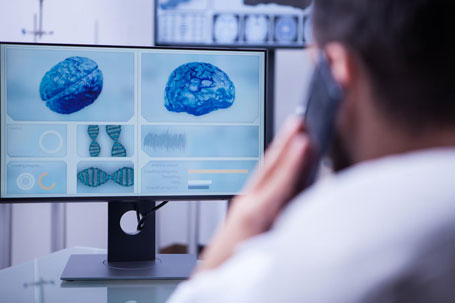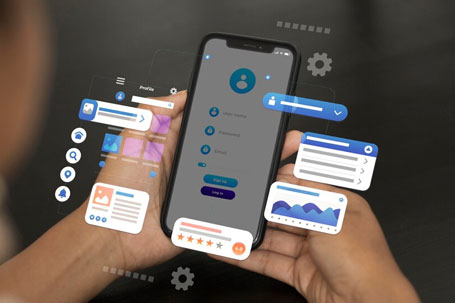
Other Initiatives

Virtual Tumor Board Library
The Virtual Tumor Board (VTB) Library is set to launch with a focus on pediatric oncology cases, offering a valuable resource for oncologists, residents, and healthcare professionals. This library will provide access to a curated collection of Virtual Tumor Board discussions from the National Cancer Grid (NCG), presenting a wide range of complex cases reviewed by multidisciplinary teams.
Designed to enhance clinical decision-making and foster collaborative learning, the VTB Library will offer insights into various approaches to diagnosis, treatment planning, and management of cancer cases. It is an evolving resource that will continuously grow, with future expansions planned to include additional oncology specialties.

Web/Mobile Apps
NCG-Patient App
A significant gap in cancer care is the lack of accessible, easy-to-understand educational content for both the general public and patients. NCG is uniquely positioned to address this gap, given its extensive network and expertise in oncology.
Approach: A comprehensive resource for patients and the general public to learn about cancer prevention, detection, and care. This app will be designed to empower individuals with easy access to reliable cancer-related information, supporting them through every stage of the cancer journey. Below is a preliminary scope that will be further refined.
- Educational Content and Awareness
- Patient Support Tools and Communities
- Access to Cancer Centers and Support Services
- Updates on upcoming health camps, screenings, and cancer awareness events
NCG-Connect App
NCG also lacks a common collaboration platform for NCG centres to connect and communicate within the network. Given the scale of NCG, it’s critical to have such a common platform to enhance collaboration across NCG.
Approach: NCG-Connect App will serve as a comprehensive resource for NCG centres and doctors to collaborate and exchange information across a broad range of topics.. Below is a preliminary scope that will be further refined.
- Network amongst cancer centres and cancer professionals
- Organize virtual tumor boards in real time
- Exchange research ideas and find research collaborators
- Match training opportunities with deserving candidates
- Brainstorm on issues of importance in National Cancer Control, including policy

Oncology AI-ML Solutions
We are currently developing a comprehensive framework to drive innovation in oncology by integrating Artificial Intelligence and Machine Learning (AI-ML) solutions. This initiative will focus on leveraging technology to enhance cancer diagnosis, treatment planning, and research through two key components: Discrete Clinical Data Capture (DCDC) and the Oncology Databank (ODB).
1. Discrete Clinical Data Capture (DCDC)
The DCDC initiative aims to develop open-source AI tools to capture discrete patient data from real-time voice interactions between doctors and patients, feeding this data into clinical systems like EMRs. By doing so, we seek to streamline clinical documentation and ensure that important patient information is captured with precision.
To achieve this, we have two strategies:
- Bhashini for DCDC: We plan to enhance the Ministry of Electronics and Information Technology's (MEITY) Bhashini platform to support DCDC, allowing for the real-time capture and conversion of voice data into structured clinical information.
- DCDC Grand Challenges: We will organize Grand Challenges to engage startups and healthcare tech companies in developing open-source tools for discrete clinical data capture. This will focus on key use cases like outpatient consultations and discharge summaries, further integrating AI into routine clinical practice.
2. Oncology Databank (ODB)
The ODB initiative will focus on building an open-source oncology databank to accelerate AI development in oncology. This databank will support the secure and effective use of AI technologies in cancer care, while also addressing key issues like data security, technical standards, and sustainable business models for long-term adoption.
To further this initiative, we will focus on two main areas:
- ODB Development: We will collaborate with NCG centers to develop a comprehensive oncology databank that facilitates learning and improves AI/ML maturity across oncology care. This databank will provide researchers, healthcare providers, and AI developers with a wealth of structured clinical data to drive innovation.
- ODB Pilot Projects: We aim to democratize access to the Oncology Databank through pilot projects that engage startups and healthcare tech companies, allowing them to refine their AI solutions. These pilot projects will focus on key oncology use cases, improving the quality and applicability of AI technologies in cancer treatment and research.
By focusing on both DCDC and ODB, this framework aims to foster collaboration across institutions, standardize data-sharing practices, and accelerate the development of AI-ML tools that can transform cancer care. These initiatives will drive more accurate clinical decision-making, improve patient outcomes, and support cutting-edge research, paving the way for AI to become an integral part of oncology care.